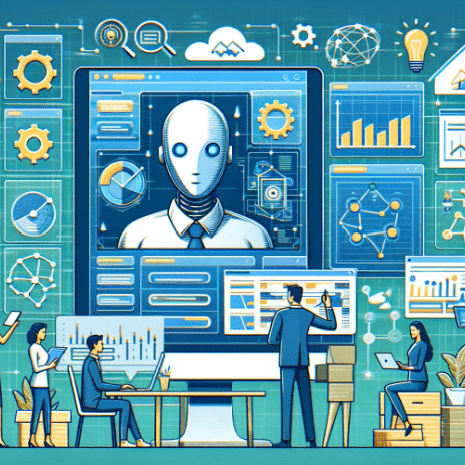In today’s rapidly changing technology landscape, Artificial Intelligence (AI) has become a game changer across many facets of our everyday life, work, and play. In my profession of project management, significant strides are being made through enhancing efficiency, improving decision-making, and fostering innovation. AI is transforming how projects are managed from inception to completion. The following are key methods AI impacts project management:
- Automated Task Management – AI-powered tools can automate task allocation and scheduling, ensuring tasks are assigned to the right team members based on their skills and availability. This not only saves time but also optimizes resource utilization, leading to higher productivity. These tools help project managers optimize resource utilization, reduce manual effort, and ensure that projects stay on track. Here are some examples of tools used for automated task management in project management:
- MS Project – Offers robust task management capabilities with automation for scheduling, task dependencies, and resource allocation. It integrates with other Microsoft tools.
- Jira – Designed for agile project management with automation for task assignments, sprint planning, and issue tracking. It integrates with various development tools.
- Smartsheet – Provides automation for workflows, including task assignments, notifications, and updates. It integrates with a wide range of tools to enhance productivity.
- Enhanced Decision-Making – AI algorithms can analyze vast amounts of data in real time, providing project managers with actionable insights. By identifying patterns and trends, AI helps predict potential risks and opportunities. This predictive capability allows project managers to make data driven decisions, reducing uncertainties, and improving project outcomes. Some example tools include:
- Microsoft Power BI – AI algorithms analyze large datasets to identify trends, predict future outcomes, and provide actionable insights.
- Tableau – Tableau’s AI capabilities help users understand underlying reasons for data trends and anomalies. Predictive analytics and real-time data integration provide insights for better decision-making.
- Improved Risk Management – AI significantly enhances risk management by continuously monitoring project data and identifying potential issues before they become critical. Predictive analytics can forecast delays, budget overruns, and resource shortages, enabling project managers to take proactive measures. This proactive approach minimizes risks and ensures projects stay on track.
- Enhanced Communication and Collaboration – AI-driven communication tools, such as chatbots and virtual assistants, facilitate seamless communication within project teams. These tools can handle routine queries, provide updates, and assist in scheduling meetings. By streamlining communication, AI ensures team members stay informed and engaged, fostering better collaboration. Her are some example tools that leverage AI to enhance communication and collaboration:
- Microsoft Teams – Microsoft Teams integrates AI for smart meeting scheduling, transcription, translation, and real-time collaboration.
- Slack – Slack uses AI-powered bots to automate tasks, provide reminders, and facilitate communication.
- Zoom- Zoom incorporates AI for automated transcription, meeting summarization, and real-time translation.
- Real-Time Reporting and Analytics – AI-powered project management software generates real-time reports and dashboards, providing project managers with up-to-date information on project progress. These insights enable timely interventions and adjustments, ensuring projects are completed on time and within budget. Real-time analytics also help identify areas for improvement, driving continuous enhancement of project management practices.
The integration of AI into project management is no longer a futuristic concept; it is a present-day reality. By leveraging AI’s capabilities, project managers can enhance decision-making, automate routine tasks, improve risk management, and foster better communication and collaboration. As a result, AI is not just transforming project management; it is unlocking new levels of creativity and strategic insight. Embracing this AI revolution will be key to staying competitive and achieving success in the ever-evolving technology landscape.

